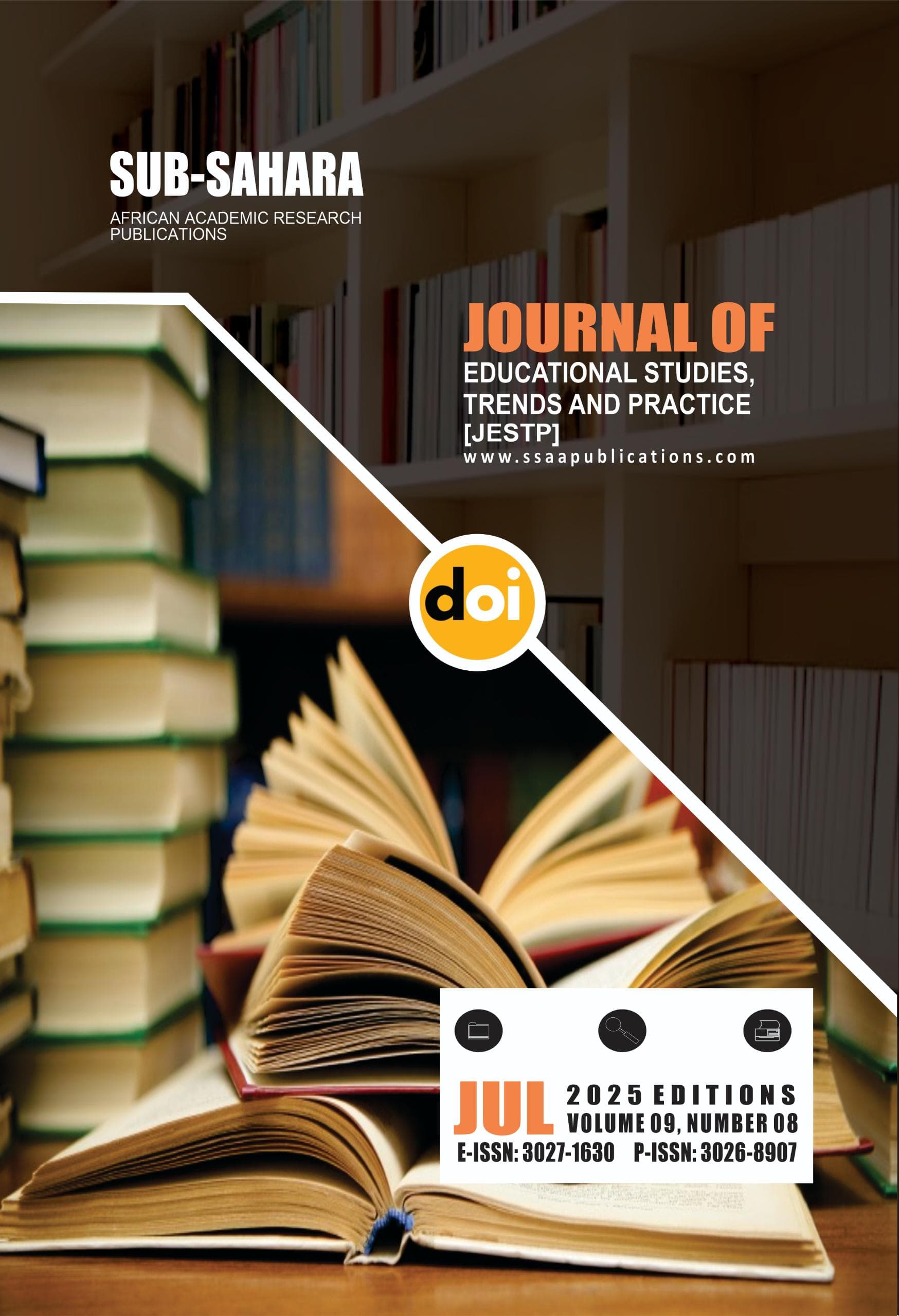ASSESSING DIGITAL READINESS OF TEACHERS IN NIGERIAN PUBLIC SCHOOLS: A CROSS-SECTIONAL ASSESSMENT
DOI:
https://doi.org/10.70382/sjestp.v9i8.041Keywords:
Digital readiness, public school teachers, Nigeria, computer literacy, TRCN registration, educational policy, school-level disparitiesAbstract
This study investigates the digital readiness of public-school teachers in Nigeria by evaluating core indicators of ICT integration, including computer literacy, TRCN registration, CPD participation, and academic qualification. Using a descriptive cross-sectional design and secondary data from the 2022 UBEC Statistical Digest, the analysis covers 36 states and the Federal Capital Territory, disaggregated by gender and school level (ECCDE, Primary, and Junior Secondary School). A Digital Readiness Index (DRI) was constructed using weighted composite scores to classify states into low, moderate, and high readiness zones. Results reveal marked regional disparities, with Lagos, FCT, and Anambra ranking highest in readiness, while Yobe, Jigawa, and Bauchi exhibit the lowest scores. Gender-based differences were minimal and statistically insignificant, whereas school-level disparities—especially lower TRCN registration among Junior Secondary School teachers—were found to be significant. The findings underscore a North–South digital divide and highlight the need for differentiated policy responses. High-performing states require strategies for sustaining innovation, while underperforming states need foundational investments in teacher capacity, infrastructure, and digital training. The study provides a replicable framework for monitoring teacher readiness and informs equitable policy planning aligned with SDG 4 and Nigeria’s digital education goals.








